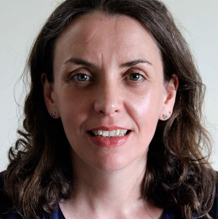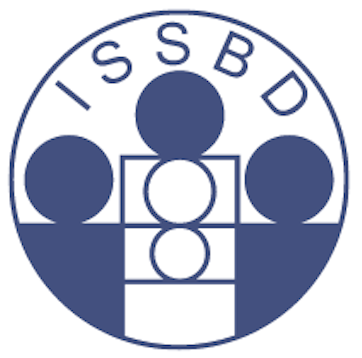
Socio-Emotional Development: Perspectives from Latin America
Chair: Rodrigo A. Cárcamo, University of San Sebastián, Chile
This symposium brings together studies conducted on Latin American samples. Four samples, two from Chile, one from Peru and one from Colombia, identify key aspects of development in infancy and childhood, both in socioemotional and moral development and their relationship with mental health and well-being.
Presentation 1:
Is Children’s Socio-Emotional Development Associated to Caregivers’ Mental Health and Parenting Practices in Peruvian Infant and Preschooler Samples?
Presenter: Magaly Nóblega, Pontifical Catholic University of Peru, Peru
Presentation 2:
He Made Me Feel Less than Nothing, So I Did What it Takes to Even Things Out” Colombian Adolescents Make Sense of Their Interpersonal Conflicts.
Presenter: Roberto Posada, Universidad Nacional de Colombia, Colombia
Presentation 3:
Infant Attachment to Mothers and Fathers and its Association to Socioemotional Development in a Chilean Sample.
Presenter: Rodrigo A. Cárcamo, Universidad San Sebastián, Chile
Presentation 4:
Understanding Children’s Mental Health Trajectories in the Latin American Context: Does the Early Family Environment Have a Buffering Effect?
Presenter: Patricia Bravo, University Medical Center Rotterdam, Netherlands

Developmental Psychology Revolutionized: Risks and Opportunities in the Digital ERA
Chair: Vasileios Stavropoulos, RMIT University, Australia
The current symposium integrates novel insights derived from Australia, the US and the UK. It emphasizes emerging developmental psychology hypotheses and methodologies, prompted by the broad use of digital media by young people. The empirical evidence presented is based on recent, multimethod, longitudinal datasets, as well as big data, aiming to enhance the understanding of: a) The developmental risks and opportunities introduced by the use of digital means; b) The utility of machine learning approaches for analysing digital gaming and social media data to extract health information; c) The differential impact of screen time on the development of neurotypical and neurodiverse populations. The first three presentations are from Australia, with the contribution of US and Greek collaborators. A novel Cyber-developmental framework will be introduced, while a series of diverse classification algorithms will be employed to analyse longitudinal and multimethod datasets. Findings aspire to address pivotal issues surrounding technology related adaptive and maladaptive behaviours, as well as the diagnostic potential of digital data. The fourth presentation is from The UK and employs a large US dataset to decode the significance of screen time for the prospective wellbeing of neurodiverse and neurotypical populations. Findings will be discussed in the light of the emerging literature, related to the broader field of developmental psychology.
Presentation 1:
Risks and Opportunities for Youth in the Digital Era
Presenter: Vasileios Stavropoulos, RMIT University, Australia
Presentation 2:
Identifying self-disclosed anxiety on Twitter: A natural language processing approach
Presenter: Daniel Zarate, RMIT University, Australia
Presentation 3:
Deep learning(s) in Mental Health through the user-avatar bond: A longitudinal study using machine learning
Presenter: Vasileios Stavropoulos, RMIT University, Australia
Presentation 4:
Screen Time Effects on Youth Wellbeing: Preliminary findings from the Adolescent Brain Cognitive Development (ABCD) study
Presenter: Olympia Palikaras, University of Warwick, UK

Resources and Risk-Factors across the Life Course: Reimagining a Science That Cares
Chair: Kristine J. Ajrouch, Eastern Michigan UNIVERSITY, USA
In the complex world in which we live, we are increasingly confronted with difficult and
challenging circumstances. Developmental science advancements draw attention to the
nexus of social structure and individual agency to enhance understanding of how
resources and risk-factors influence positive human development across the life course.
However, the nuanced ways in which these factors promote resilience in youth and
adulthood, and facilitate growth or lead to decline are best understood when examined
in global context. To reimagine a science that cares about global challenges, this invited
symposium will bring together scholars from three regions of the world: Middle East,
U.S. and Europe. Abdulrahim will examine the social-structure-individual agency nexus
in the context of early-marriage among young Syrian women who were forced to seek
refuge in Lebanon. McBride Murry will draw on the extensive critical review emerging
from the National Academies of Science, Engineering, and Medicine Consensus Report
on Addressing the Long-Term Impact of the COVID-19 Pandemic on Children and
Families, released early 2023 to describe impacts of the pandemic on adolescents and
their families in social, emotional, and relational development; learning and education;
and physical and mental health, outlining economic and social policies that are needed
to promote recovery and foster positive developmental outcomes for youth, adolescents
and families. Suanet and colleagues consider the “loneliness epidemic” among older
adults in Germany, scrutinizing loneliness levels and age-related trajectories in cohorts
born in 1990 and 2010. Finally, Antonucci will discuss these papers to facilitate
understanding of the ways in which attention to the social structure-individual agency
nexus across global contexts advances a science that cares in various life course
situations. In sum, reimagining a science that cares is meant to facilitate renewed
attention to diverse populations, contexts, and methods as a way to spotlight and
maximize the ways in which science can address some of the world’s most pressing
challenges.
Presentation 1:
A life course approach to early marriage: a qualitative study among Syrian
refugees in Lebanon
Presenter: Sawsan Abdulrahim, American University of Beirut, Lebanon
Presentation 2:
Examining the Global Effects of COVID-19 Pandemic and Structural Oppression
and Trauma on Children, Youth, and Families: Implications for Reimaging
Economic and Social Policies to Promote Recovery and Pandemic Proof for the
Future
Presenter: Velma McBride Murray, Vanderbilt University, USA
Presentation 3:
Historical Change in Trajectories of Loneliness in Old Age
Presenter: Bianca Suanet, Vrije Universiteit Amsterdam, Netherlands
Discussion
Discussant: Toni C. Antonucci, University of Michigan, USA

Mind-Mindedness: Measures and Mechanisms
Chair: Elizabeth Meins, University of York, UK
This invited symposium focuses on the construct of mind-mindedness—the caregiver’s tendency to treat their young child as an individual with a mind of their own. The aim is to explore (a) how best to measure mind-mindedness at different points in development, and (b) the mechanisms via which mind-mindedness predicts children’s development.
Presentation 1:
Is the Describe-Your-Child Measure a Valid Assessment of Mind-Mindedness in Infancy?
Presenter: Elizabeth Meins, University of York, UK
Presentation 2:
Inter-Relations Between Mind-Mindedness, Maternal Communicative Behavior in the Context of Attachment Distress, and Infant–Mother Attachment Security
Presenter: Elisabetta Lombardi, eCampus University, Italy; Università Cattolica del Sacro Cuore, Italy
Presentation 3:
Maternal Mind-Mindedness and Children’s Sociocognitive Development: Developmental Pathways from Mind-Mindedness to Children’s Mentalizing Abilities
Presenter: Yujin Lee, University of York, UK
Presentation 4:
Mind-Mindedness as a Moderator in the Context of Marital Conflict
Presenter: Daphna Dollberg, The Academic College of Tel Aviv Yaffo, Israel

Developmental Psychobiology in the Majority World
Chair: Paul D. Hastings, University of California, Davis, USA
There continues to be urgent need to globalize research in the developmental sciences. ISSBD has long been at the forefront of these efforts, yet until recently, progress has lagged for the subfield of developmental psychobiology. Most studies of the connections between co-developing neurophysiological systems and psychosocial functioning have been conducted in Western, high-income countries. Whether the findings from such studies can be applied to children and families in the majority world is debatable, as psychobiological development is shaped by the contexts, cultures and resources within which families raise their children. Arguably, though, we are at a turning point. This symposium highlights four exemplars of developmental psychobiology research in the majority world, united in their common focus upon the autonomic nervous system (ANS), yet diverse in their representations of geography, communities, ages and focal topics. The presentations will describe developmental psychobiological research being conducted in Africa, Asia, the Middle East and South America, within stable and forcibly displaced communities, and with participants ranging from early childhood to adult parents. The ANS is examined as (a) a mechanism of the intergenerational transmission of trauma from mothers to their infants, (b) a feature of mother-child synchrony during problem solving, (c) a socialized aspect of young adolescents’ executive function capabilities, and (d) a component of emerging adults’ multi-system stress reactivity and regulation.
Presentation 1:
Psychobiological Methods to Investigate the Effects of Maternal Trauma and Mental Health on Offspring Development in the Rohingya Context, Bangladesh
Presenter: Alice J. Wuermli, New York University, USA
Presentation 2:
Mother-Child Physiological Synchrony During a Frustration Situation: Average Vs Time-Segment Analysis of Families in the United Arab Emirates
Presenter: Jae Hyung Lee, New York University Abu Dhabi, EAU
Presentation 3:
ANS Regulation of 10-Year-Old Children in Ghana is Predicted by Earlier Home Environments and Associated With Inhibitory Control
Presenter: Lois M. D. Aryee, University of Ghana, Ghana
Presentation 4:
Concordance in the Physiological and Subjective Responses to Stress in Chilean Young Adults with Different Temperamental Profiles
Presenter: Carola Pérez, Universidad del Desarrollo, Chile

The Complexity of Moral Domain in Peer Aggression
Chair: Eva Romera, Universidad de Córdoba, Spain
Morality has received special attention over the last decade to understand the unfair and immoral nature of peer aggression. When children and adolescents make moral responses to different aggressive situations, like bullying, they may be under conflicting pressure not only to consider their own emotions, motivations, interests, and values but also to seek the approval and support of their peer group. This symposium addresses from a multidimensional and practical perspective the relevance of moral competence in the prevention of peer aggression, examining the experiences of young people from three different countries. The first paper (Romera, Camacho, Bravo & Ortega-Ruiz) is a study with Spanish schoolchildren analyzing the impact of moral sensitivity on defending and aggressive behavior. The second paper (Caravita, Belacchi & Altoé) explores how moral disengagement impacts on different natural groups in bullying in Italian adolescents. The third paper (Ferreira, Veiga Simão & Rodrigues) explores the mechanisms of moral (dis)engagement that motivated Portuguese adolescents’ passive, aggressive, and pro-social bystanders’ behavior in cyberbullying. Finally, Rita Žukauskienė will discuss these papers to facilitate understanding of the moral processes that intervene in peer aggression to introduce intervention keys in the design of holistic models to promote moral competence. This understanding from different methodologies and cultures can guide evidence-based recommendations for educational practice.
Presentation 1:
Moral Sensitivity in the Framework of Peer Prosocial and Aggressive Behavior
Presenter: Eva M. Romera, Universidad de Córdoba, Spain
Presentation 2:
Morality of Natural Groups with Different Involvement in Bullying: a Factor Mixture Analysis Study Among Italian Adolescents
Presenter: Simona C. S. Caravita, University of Stavanger, Norway
Presentation 3:
Uncovering Moral (Dis)Engagement Mechanisms in Bystanders’ Aggressive, Passive and Pro-social Behavior
Presenter: Paula Ferreira, University of Lisbon, Portugal
Discussion
Discussant: Rita Žukauskienė, Mykolas Romeris University, Lithuania

ISSBD – ICDSS Joint Symposium
Policy Implications of Developmental Research Around the World
Chair: Marcel van Aken, Utrecht University, Netherlands
Conducting vital developmental psychological research with policy implications is essential for enhancing societal well-being. Insights gained from policy-oriented research across diverse cultures can enhance our studies and shape policies that advance equitable education, mental health, and social support globally, fostering inclusive and resilient communities. This symposium focuses on developmental research explicitly aimed at influencing policies related to child and adolescent development. Presentations from four continents exemplify such research, delving into broader issues surrounding policy influence, with a specific regional focus. The first presentation addresses home and school education in Kenya, Africa, providing policy recommendations and stakeholder document dissemination. The second presentation, from Brazil, utilizes national data on youth violence, emphasizing the need for public policies and societal actions. The third presentation examines content restrictions on race, gender identity, and sexual orientation in Florida, USA, exploring policy and advocacy responses based on qualitative data from teachers and parents. The final presentation outlines emotion and attachment-focused parenting programs in Victoria, Australia, demonstrating how these programs reshape societal responses to emotions. In a broader discussion inspired by these presentations, we will underscore the significance of developmental research influencing policies. The insights from these four presentations will guide our understanding of achieving this goal in diverse regions globally.
Presentation 1:
Indigenous Care and Motivation Practices as Transition Strategy Into Formal School Tasks
Presenter: Pamela Wadende, Kisii University, Kenya
Presentation 2:
From Data to Action: Brazilian Strategies to Respond to Violence Against Children and Adolescent
Presenter: Simone dos Santos Paludo, Universidade Federal do Rio Grande, Brazil
Presentation 3:
Effects of Content Restriction Policies on Education and Learning: Evidence from the State of Florida
Presenter: Hirokazu Yoshikawa, New York University, USA
Presentation 4:
Making Emotion Focused Parenting Programs Accessible at the Population Level
Presenter: Sophie Havighurst, The University of Melbourne, Australia

ISSBD – SRA Joint Symposium
New Directions in the Study of Adolescent Friendships
Chair: JULIE C. BOWKER, University at Buffalo, Suny, USA
Decades of findings point to the significant impact of friends on the day-to-day life, development, and health of adolescents. The nature of friendship experiences is multi-dimensional, but most work on friendships has tended to focus on only one feature of friendship: mutual friendship involvement (i.e., whether youth have reciprocated friendships). Variability in the positive and negative qualities of youths’ friendships can also contribute uniquely to psychosocial adjustment outcomes. In addition, the consideration of the number of friendships as well as the behaviors displayed by friends may also reveal information about variability in youth outcomes. Yet, these aspects of friendship experiences are rarely considered in studies of adolescent well-being.Drawing from multiple theoretical perspectives, the four papers in this symposium will showcase new approaches to advance knowledge of how different features of friendship experiences contribute to and/or provide unique contexts for the development of psychological and social health and well-being. Paper 1 explores the cumulative impact of the number of friends over time. Paper 2 considers number of friends versus friendlessness as a risk factor for peer conformity. Paper 3 examines whether the impact of friendship security depends on socioeconomic equality and culture. Paper 4 evaluates the circumstances surrounding prosocial treatment, a behavior commonly enacted by friends. The studies are diverse in their methods and samples, and yet complementary in their questions, and together, provide new information that will set the stage for future research and prevention and intervention efforts.
Presentation 1:
Examining Cumulative Effects Of Friendship Involvement Over Time During Early Adolescence
Presenter: Julie C. Bowker, University at Buffalo, Suny, USA
Presentation 2:
Youth With Few Friends Are At Heightened Risk For Conformity To Classroom Norms
Presenter: Sharon Faur, Florida Atlantic University, USA
Presentation 3:
Friendship Effects Are Moderated By Socioeconomic Inequality In Early Adolescence
Presenter: William M. Bukowski, Concordia University, Canada
Presentation 4:
Prosocial Treatment In The Everyday Lives Of Early Adolescents: Events, Intention, And Responses
Presenter: Melanie A. Dirks, McGill University, Canada


The Essence of Science is Independent Thinking: A Research Symposium in Honor of Willard W. Hartup and Thomas A. Kindermann
Chair: Brett Laursen, Florida Atlantic University, USA
Presentation 1:
Why Peer Networks Matter
Presenter: William M. Bukowski, Concordia University, Canada
Presentation 1:
Friendship and the Search for Common Ground: Acknowledging and Extending Willard W. Hartup’s Insights Into the Most Important Peer Relationship
Presenter: Brett Laursen, Florida Atlantic University, USA
Presentation 2:
Peers Are Fabulous: The Legacy of Thomas Kindermann’s Scrutiny of Naturally-Occurring Peer Groups in the Development of Children and Youth
Presenter: Melanie Zimmer-Gembeck, Griffith University, Australia
Discussion
Reflections on the Lives and Contributions of Willard W. Hartup and Thomas Kindermann
Discussants:
– Melanie Zimmer-Gembeck, Griffith University, Australia;
– Ellen Skinner, Portland State University, USA;
– Brett Laursen, Florida Atlantic University, USA

ISSBD’s Role in Developmental Science: Symposium from Past Presidents
Chairs:
– Anne C Petersen, University of Michigan, USA
– Rainer K. Silbereisen, University of Jena, Germany
This invited symposium with past Presidents will involve each participant discussing some way ISSBD has played a role in the emergence of developmental science. We believe that there are many ways ISSBD has impacted research on human development. It has progressively expanded to more of the world, from the initial expansion from Western Europe and the US to Eastern Europe, and then “going global” with regional workshops in Africa, South America, and Asia, now achieving membership from over 70 countries across six continents. Also ISSBD was established to be multidisciplinary and has become increasingly so, embracing education, psychology, sociology, anthropology, among other fields. Finally, a major emphasis from the outset has been on applied research, especially implications for policy and programs. Intervention research has long been a major feature, including programs for education, social programs, as well as programs for special age groups such as children, youth, and the elderly. Longitudinal research designs have been a hallmark with variations such as cohort-sequential designs and more elaborate multi-level, multi-time, and multivariable designs. Behavior has been a central focus but increasingly social structures and cultural contexts have been a consistent feature of research.
The session will focus on what difference we made on the field with our perspectives. How has multinational or multi-cultural research informed our knowledge of human development? All Past Presidents (Lea Pulkkinen, Ken Rubin, Rainer Silbereisen, Anne C. Petersen, Wolfgang Schneider, Xinyin Chen, Toni Antonucci) will participate. Each panelist will be asked to comment on a contribution they observed or stimulated during their tenure as an officer of ISSBD. Was influencing developmental science an explicit aim or was it simply an interest that had implications for the field? Which specific achievements were they able to implement in policy or practice? Was the emphasis continued? Were any special approaches (e.g., workshops, communiques) useful in continuing the emphasis? Overall, which opportunities and/or obstacles occurred in changing the agenda to a broader understanding of development-in-context?
Presenters:
– Anne C. Petersen, University of Michigan, USA
– Rainer K. Silbereisen, University of Jena, Germany
– Lea Pulkkinen, University of Jyväskylä, Finland
– Kenneth H. Rubin, University of Maryland, USA
– Wolfgang Schneider, University of Würzburg, Germany
– Xinyin Chen, University of Pennsylvania, USA
– Toni Antonucci, University of Michigan, USA
